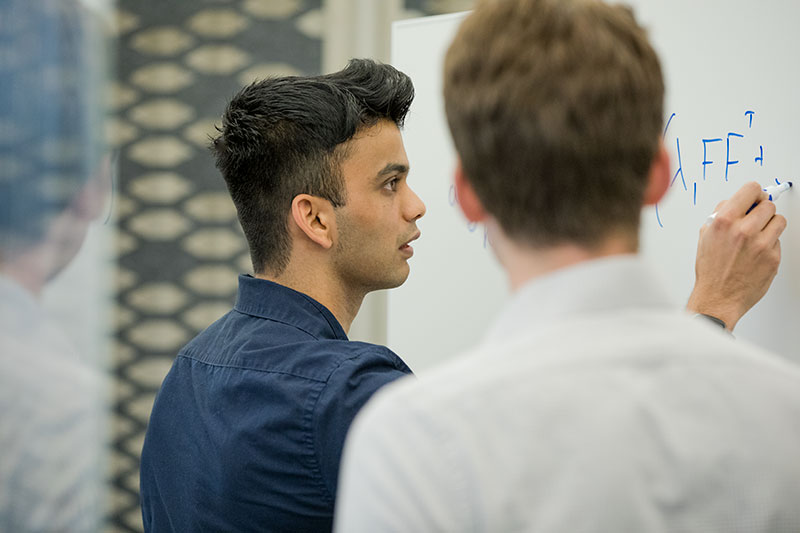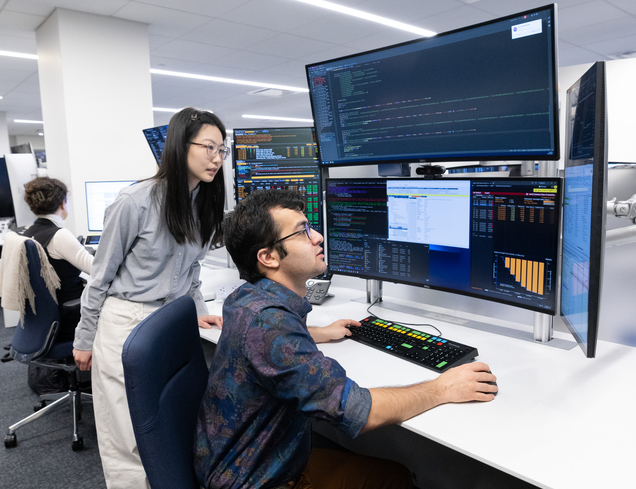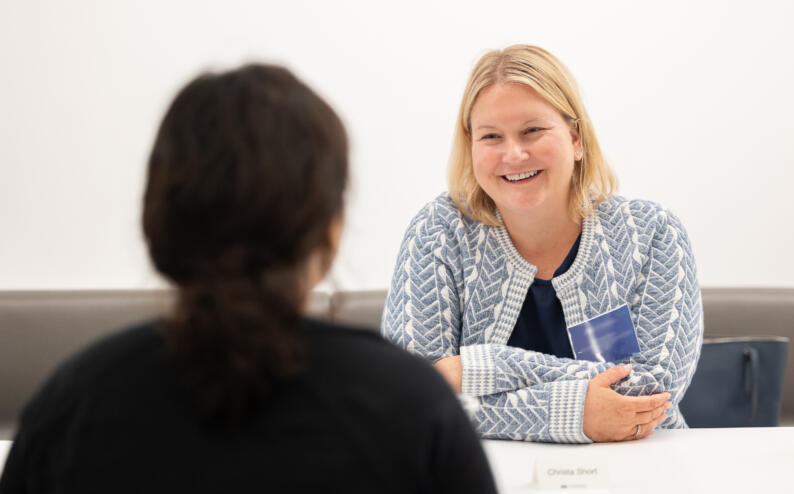What sets Citadel apart in the financial industry?
We only hire extraordinary talent. Our colleagues are extremely smart, driven individuals focused on achieving results. The opportunity for learning and growth is unrivaled.
Success is shared. We work alongside our peers and mentors to develop ideas together. When quants present their work to their research team, they receive valuable academic-style feedback. Teams pressure-test ideas from all angles, asking nuanced questions and challenging specific elements to ensure the concept is as strong as possible.
We can also make an impact faster here than just about anywhere else. Some firms keep research and production separate. Here, we combine the two, making us faster and more agile. A new project might go from ideation, to deployment, to the investment and trading teams within an hour.
What does a career path in quantitative research look like?
When you start, you will join a specialized team and have the opportunity to quickly learn and master new skills. Your success depends on your ability to apply yourself in a collaborative environment, one in which you can turn your ideas into measurable business impact.
Citadel provides the resources and mentors you need to be successful. There are countless opportunities to raise your hand with ideas and receive the tools to translate those lightbulb moments into reality. Flawless execution of these proposals will only lead to more opportunities to explore your solutions and demonstrate their value.
As you progress, you can take control of core strategies, new ideas and features. There is a real opportunity to own the entire pipeline—from generating an idea, to determining its viability, to implementing code, and finally, to deploying the solution for the business.
A true meritocracy, we foster an environment where people who demonstrate initiative and capability keep both their projects and careers accelerating.
What can you expect to learn as a quantitative researcher?
You will have the opportunity to hone your research expertise, improve your technical skills and develop your intuition.
When you work in the financial markets, you won’t wait weeks or months to see if you were right or if your hypothesis held. Projects are put into production and live trading. The markets give you real-time feedback, which helps you iterate and learn faster.
Since attention to detail is key, our quants continually sharpen their coding skills and become more confident in their ability to consistently deliver stable and production-ready code.
Our quants also develop a strong intuition for identifying what is important when they are testing and researching projects. Sometimes a small anomaly can lead to a large discovery, and they learn to embrace that way of thinking as they develop their intuition.
What is the firm’s culture like for quantitative researchers?
Collaboration is at the heart of our culture. We learn not only from our research, but from one another. Everyone focuses on new ways to contribute and add value.
We encourage the dynamic, experimental and autonomous approach familiar in many leading tech startups but provide the supportive framework of an established financial firm. This means you can benefit from mobility, communication, resources and top-tier benefits.
Our researchers come from a variety of backgrounds and thrive because they bring their unique perspectives and research specialties to bear. While each quant is expected to be a subject matter expert in a particular vertical, sharing and challenging ideas is necessary develop and deliver optimal solutions. Everyone continually thinks about how they can add value and what they can do to contribute.
Finally, we are empowered to contribute in meaningful ways. We’re motivated to do more than we ever thought possible – and are recognized for our accomplishments.








